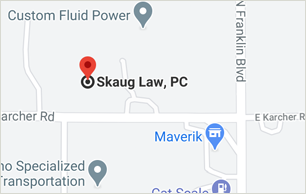Can I Sue My Employer for Denying Worker’s Comp Benefits?
Last updated Thursday, September 19th, 2024

Can I sue my employer for denying workers comp? Yes, but only if your employer intentionally obstructed your claim. This article will guide you through understanding workers’ compensation, reasons for denial, and legal steps if you choose to sue.
Key Takeaways
- Workers’ compensation claims provide injured employees with essential benefits such as medical care, wage replacement, and vocational rehabilitation, but common reasons for denial include late reporting and injuries not linked to work duties.
- Employees may have grounds to sue their employer for denying workers’ compensation if there is evidence of intentional interference or bad faith actions that disrupt the claims process.
- If a workers’ compensation claim is denied, employees should gather evidence, consult with a specialized attorney, and file an appeal promptly to increase the chances of obtaining the benefits they are entitled to.
Have You Been Injured at Work?
Get Your Free Injury Case Review
Hire an experienced workers’ compensation attorney who knows what needs to be done. The minute you sign with Skaug Law – we start working.
Understanding Workers’ Compensation Claims
Workers’ compensation is a critical safety net for employees who suffer workplace injuries or illnesses. It is designed to provide financial support, regardless of who is at fault for the injury or illness. The primary goal is to ensure that injured workers receive benefits such as medical care, wage replacement, disability payments, and vocational rehabilitation. This system helps injured employees focus on their recovery without the added stress of financial instability.
The specifics of workers’ compensation benefits can vary significantly from state to state. However, common benefits include coverage for medical expenses, vocational rehabilitation, and disability benefits. If an employee is unable to work, workers’ compensation typically provides medical treatment and income support. Certain professions and independent contractors may be excluded from coverage in many states. Workers’ compensation is usually financed through premiums paid by employers, ensuring that employees do not face deductions from their paychecks.
For injured workers, the first step in the workers’ compensation process is to report the injury to their employer. Generally, employees have 30 days to report their injury. Prompt reporting is crucial as it sets the wheels in motion for the workers’ compensation claim. Knowing these fundamental aspects of workers’ compensation helps navigate the system and ensures injured employees receive their entitled benefits.
Common Reasons for Denied Workers’ Compensation Claims
Before:
While the workers’ compensation system is designed to support injured employees, not all claims are approved. There are several common reasons why workers’ compensation claims may be denied. Injuries that occur outside of work duties, for example, are typically not covered by workers’ compensation. Similarly, injuries resulting from workplace horseplay or roughhousing are generally excluded from coverage. The timing of the injury report is also critical. Failure to notify your employer promptly can result in claim denial, even if the injury is valid.
After:
Common reasons why workers’ compensation claims may be denied include:
- Injuries that occur outside of work duties, which are typically not covered
- Injuries resulting from workplace horseplay or roughhousing, which are generally excluded from coverage
- Failure to notify your employer promptly about the injury, can result in claim denial even if the injury is valid
The workers’ compensation system is designed to support injured employees, but it is important to understand these common pitfalls.
Another common reason for denial is late filing of the workers’ compensation claim. Injured employees must adhere to strict deadlines, and missing these deadlines can lead to outright denying workers comp. Additionally, if the injured party was under the influence of drugs or alcohol at the time of the injury, the claim is likely to be denied. Employers can dispute claims by alleging substance influence, further complicating the process.
Documentation plays a crucial role in the approval of a workers’ compensation claim. Without proper medical treatment documentation, claims can be dismissed as fabricated. Seeking treatment from approved medical providers is crucial, as failure to do so may result in claim rejection. The accident report and medical records must match to validate the workers’ compensation claim.
Claims linked to pre-existing conditions may also be denied if it is determined that the job did not worsen the condition. Understanding these common reasons for denial can help injured employees better prepare their claims and avoid potential pitfalls.
Legal Grounds for Suing Your Employer
In some cases, injured employees may have legal grounds to sue their employer if their workers’ compensation claim is denied. One such ground is intentional interference with the workers’ compensation claim process. If an employer intentionally disrupts the process, such as by withholding crucial information or engaging in fraudulent behavior, it can provide grounds for a lawsuit. Employees may have legal recourse if they can prove that their employer’s actions were intentionally harmful to their compensation claims.
Proving intentional interference or fraudulent behavior can be challenging. Employees must gather substantial evidence to support their claims. For example, if an employer withholds information about the injury or the claim, this can be used as evidence of fraudulent behavior. Additionally, employees can sue their employers for bad faith actions that harm the compensation claims process. Bad faith actions include any deliberate attempts by the employer to undermine the employee’s claim or deny benefits unfairly.
The burden of proof in such cases lies with the plaintiff, the injured employee. This means that the employee must demonstrate that the employer’s actions were intentional and directly harmed their workers’ compensation claim. Having an experienced workers’ compensation attorney can help navigate this complex legal landscape. An attorney can help gather the necessary evidence, develop a strong case, and represent the employee’s interests in court.
Suing an employer for denying workers’ compensation benefits is not a decision to be taken lightly. It involves significant legal challenges and the need for substantial proof. However, for employees who have been wronged by their employers’ intentional acts, it can be a necessary step to secure the compensation they deserve.
Steps to Take if Your Workers’ Compensation Claim is Denied
If your workers’ compensation claim is denied, it’s important not to lose hope. There are several steps you can take to challenge the denial and pursue the benefits you are entitled to.
The first step is to gather evidence to support your claim, ensuring that all necessary documentation is in place. Next, consult a workers’ compensation attorney who can provide expert guidance and help you navigate the appeals process.
Finally, file an appeal promptly, adhering to the strict deadlines and requirements of the appeals process. Each of these steps is crucial for increasing your chances of a successful outcome.
Gather Evidence
Gathering evidence is a critical step in challenging a denied workers’ compensation claim. This involves collecting medical records, witness testimonies, and any other substantial documentation that can support your claim. Medical records are essential as they provide detailed accounts of the injuries sustained and the treatment received. These documents can help substantiate the severity of the injury and its impact on your ability to work.
Witness testimonies can also play a vital role in supporting your claim. Work colleagues who witnessed the injury or can provide accounts of the events leading up to it can offer valuable evidence. Their statements can corroborate your version of events and demonstrate that the work-related injury occurred during work-related activities.
Thoroughly documenting and organizing all evidence will strengthen your case and improve your chances of a successful appeal.
Consult a Workers’ Compensation Attorney
Consulting a workers’ compensation attorney is crucial if your claim is denied. An experienced attorney can evaluate your case, gather material facts, and develop a strategy to strengthen your claim. They can assess the merits of your case and provide guidance on the next steps to take. If your employer fails to report your injury or disputes your claim, an attorney can help navigate these challenges and ensure that your rights are protected.
Having legal representation can significantly improve your chances of a successful outcome. An attorney can help expedite the benefits process, ensure timely submission of documents, and advocate for prompt payments. They can also provide guidance on navigating potential retaliation from employers for filing claims, which is prohibited under many state laws.
Engaging a workers’ compensation attorney early in the process can make a substantial difference in the success of your claim.
File an Appeal
Filing an appeal is the next step if your workers’ compensation claim is denied. The first step in this process is to understand the specific reasons for the denial and gather relevant evidence to address these issues. Adhering to strict deadlines for filing an appeal is necessary, with timeframes varying by state but typically requiring action within a few weeks of receiving the denial notice. The appeal process involves submitting necessary paperwork, including the denial letter, additional evidence supporting the claim, and a completed appeal form.
Having a qualified workers’ compensation attorney can significantly improve your chances of a successful appeal. Attorneys are well-versed in the specific requirements and processes involved in appeals. They can help ensure that all necessary documentation is submitted promptly and that your case is presented effectively.
Following these steps enables you to challenge the denial and pursue the workers’ compensation benefits you deserve.
Potential Outcomes of Suing Your Employer
Suing your employer for denying workers’ compensation benefits can lead to several potential outcomes. If the court rules in your favor, you could receive damages for pain and suffering, medical bills, and lost wages. Additionally, you may be awarded punitive damages and compensation for permanent impairment. These outcomes can provide significant financial relief and help you recover from the impact of your injury.
However, pursuing a lawsuit to sue your employer also involves challenges and risks. The burden of proof lies with the plaintiff, requiring you to demonstrate that the employer acted intentionally to harm you. If you lose the lawsuit, you might end up with nothing at all.
In some cases, both parties may reach an out-of-court settlement, which can halt the trial process and provide a mutually agreeable resolution. Knowing the potential outcomes and risks helps in making informed decisions about pursuing legal action.
The Role of Workers’ Compensation Insurance Companies
Workers’ compensation insurance companies play a crucial role in the workers’ compensation system. They provide injured employees with benefits such as medical bills and a portion of lost wages.
In most states, employers are required to provide workers’ compensation insurance coverage, ensuring that employees have access to these benefits in case of a workplace injury.
The rates and benefits are reviewed and set annually by insurance companies and state departments of labor. Organizations like the National Council on Compensation Insurance (NCCI) influence these evaluations.
Insurance companies often aim to minimize payouts for medical treatment and other benefits. They may require an independent medical exam to determine if a worker is medically fit to return to work.
Knowing the role of an insurance company and its tactics can help injured employees navigate the workers’ compensation system more effectively and advocate for fair compensation.
Suing a Third Party for Work-Related Injuries
In addition to pursuing a workers’ compensation claim, injured employees may have the option to sue a third party responsible for their injury. Third-party claims are legal actions taken against parties other than the employer, such as manufacturers of defective equipment or negligent contractors. To win a third-party lawsuit, an employee must prove that the third party was negligent and owed a duty of care. This can open avenues for additional compensation beyond what is available through workers’ compensation, including damages for pain and suffering.
Workers can file claims against third parties while still receiving workers’ compensation benefits. This dual approach can provide comprehensive financial relief and address both immediate and long-term needs resulting from the injury.
Knowing the potential for third-party lawsuits is important for navigating the aftermath of a workplace injury and securing adequate compensation.
Importance of Legal Representation in Workers’ Compensation Cases
Legal representation is vital in workers’ compensation cases due to the complexities and challenges involved. Injured workers often face significant hurdles in the workers’ compensation system, making legal representation essential for navigating these complexities. An experienced workers’ compensation attorney can effectively counteract insurance companies’ tactics aimed at minimizing payouts. They can also ensure that injured employees receive fair compensation for long-term needs, particularly for those with permanent disabilities.
Having an attorney increases the likelihood of a successful claim or appeal. They can expedite the benefits process, ensure timely submission of documents, and advocate for prompt payments.
Legal representation can also provide guidance on navigating potential retaliation from employers, which is prohibited under many state laws. Hiring a workers’ compensation attorney is crucial in securing the benefits and compensation you deserve under workers’ compensation law.
Frequently Asked Questions
What are common reasons for denied workers' compensation claims?
Common reasons for denied workers’ compensation claims include injuries that occur outside of work duties, late filing of the claim, influence of substances at the time of injury, and discrepancies in documentation. It is crucial to ensure all aspects align with the requirements to avoid denial.
Can I sue my employer if my workers' compensation claim is denied?
You can sue your employer if you can demonstrate intentional interference or fraudulent behavior related to your denied workers’ compensation claim. However, this situation can be complex and may require legal counsel.
What steps should I take if my workers' compensation claim is denied?
If your workers’ compensation claim is denied, promptly gather all relevant evidence, consult with a workers’ compensation attorney, and file an appeal. Taking these steps can significantly improve your chances of a successful outcome.
What are the potential outcomes of suing my employer?
Suing your employer could result in financial compensation for pain and suffering, medical expenses, and lost wages; however, it is important to be aware of the inherent risks and challenges associated with such legal action.
Why is legal representation important in workers' compensation cases?
Legal representation is crucial in workers’ compensation cases as it provides expertise in navigating legal complexities and countering insurance company tactics, thereby significantly enhancing the likelihood of a successful claim or appeal.
What are common reasons for denied workers' compensation claims?
Can I sue my employer if my workers' compensation claim is denied?
What steps should I take if my workers' compensation claim is denied?
What are the potential outcomes of suing my employer?
Why is legal representation important in workers' compensation cases?
What are common reasons for denied workers' compensation claims?
Common reasons for denied workers’ compensation claims include injuries that occur outside of work duties, late filing of the claim, influence of substances at the time of injury, and discrepancies in documentation. It is crucial to ensure all aspects align with the requirements to avoid denial.
Can I sue my employer if my workers' compensation claim is denied?You can sue your employer if you can demonstrate intentional interference or fraudulent behavior related to your denied workers’ compensation claim. However, this situation can be complex and may require legal counsel.
What steps should I take if my workers' compensation claim is denied?If your workers’ compensation claim is denied, promptly gather all relevant evidence, consult with a workers’ compensation attorney, and file an appeal. Taking these steps can significantly improve your chances of a successful outcome.
What are the potential outcomes of suing my employer?Suing your employer could result in financial compensation for pain and suffering, medical expenses, and lost wages; however, it is important to be aware of the inherent risks and challenges associated with such legal action.
Why is legal representation important in workers' compensation cases?Legal representation is crucial in workers’ compensation cases as it provides expertise in navigating legal complexities and countering insurance company tactics, thereby significantly enhancing the likelihood of a successful claim or appeal.



